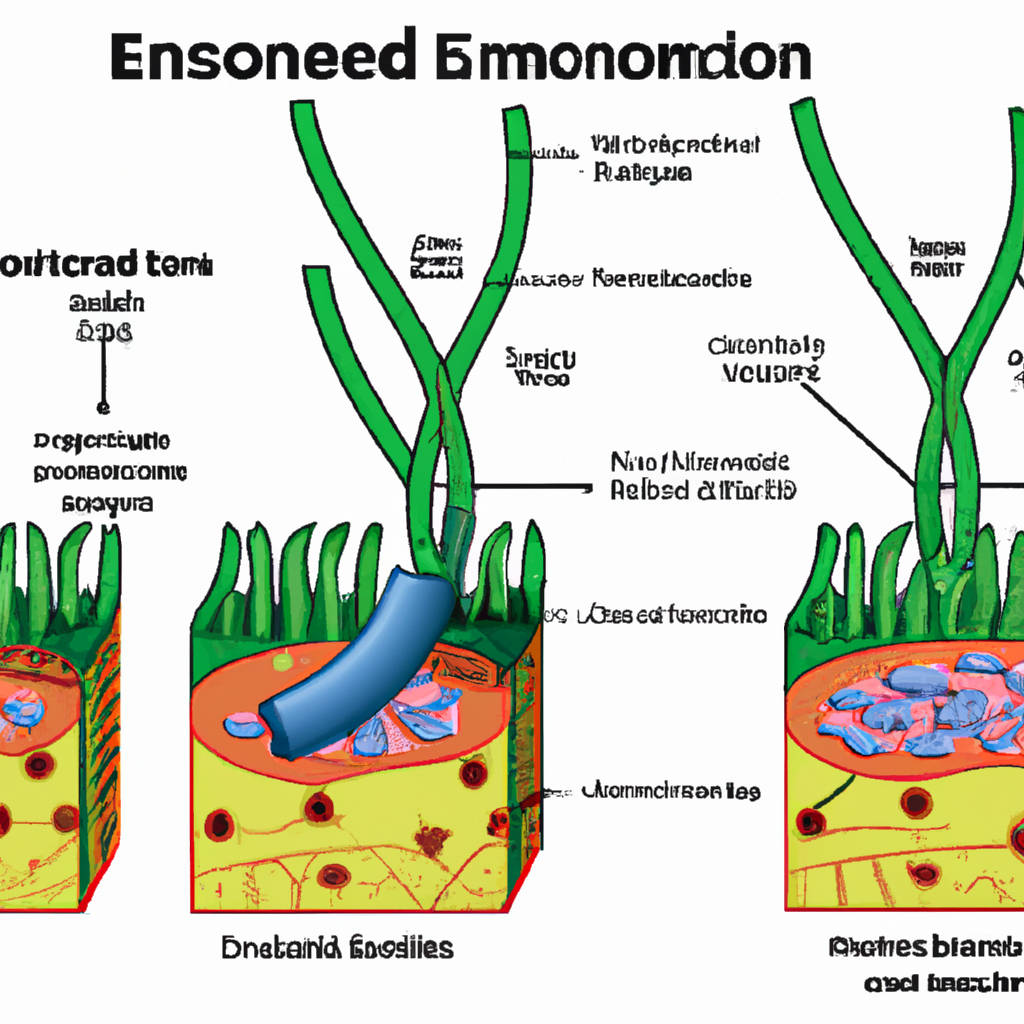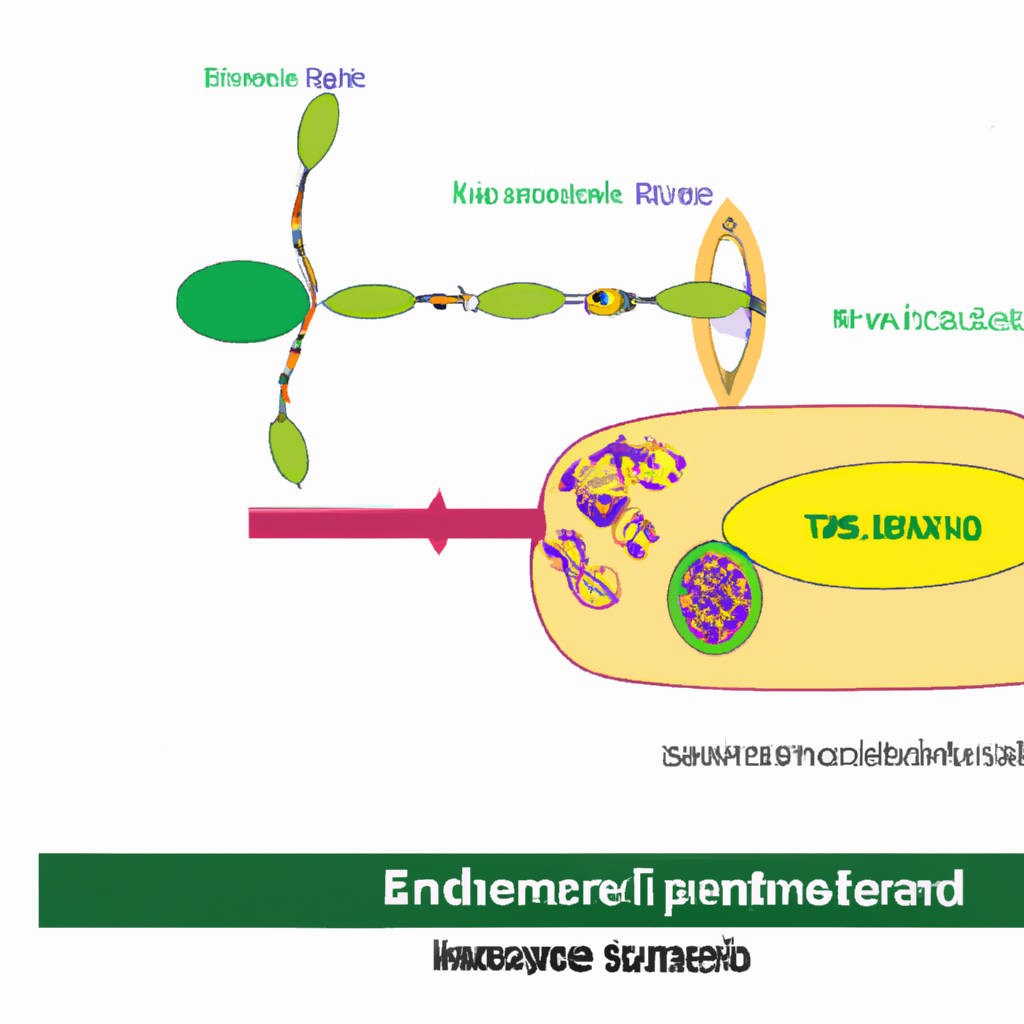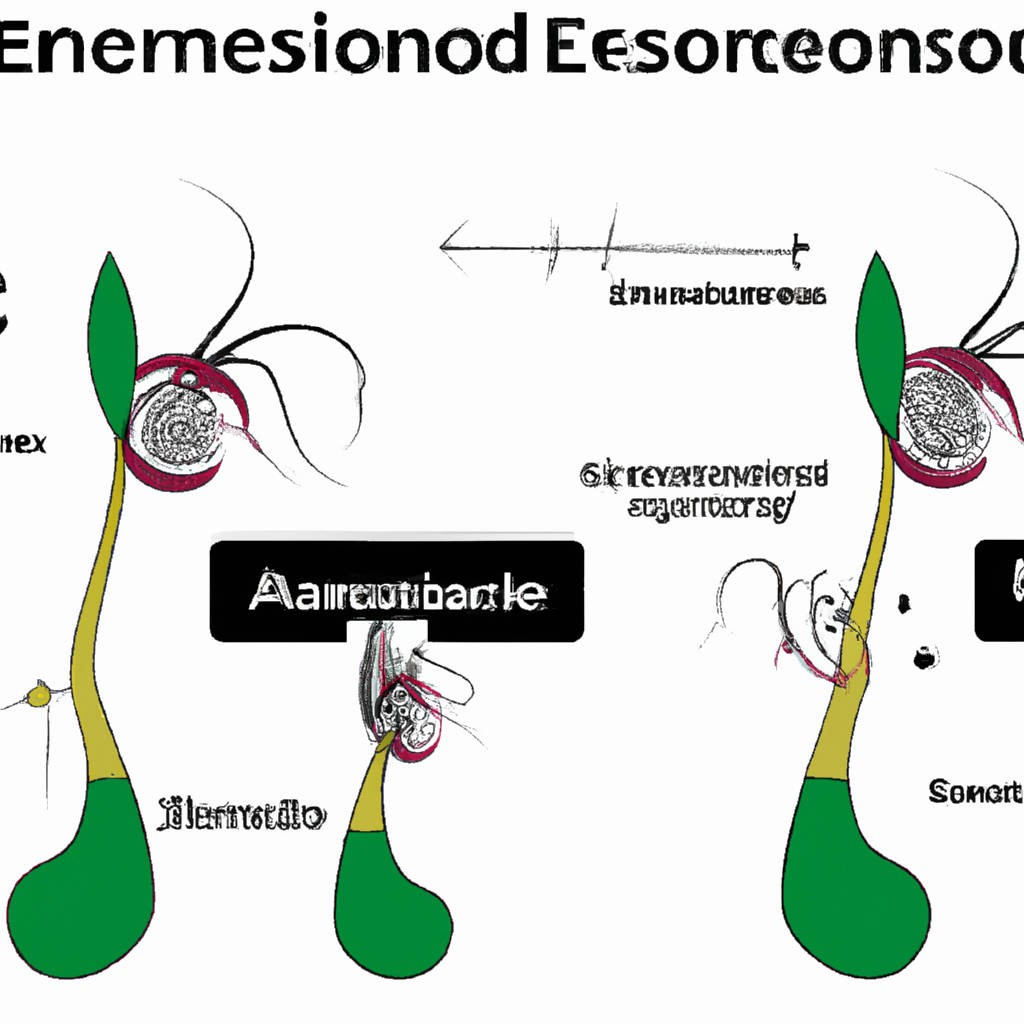Endosomes are membrane-bound compartments found in plant cells that play a crucial role in various cellular processes. These organelles are involved in the sorting, processing, and trafficking of molecules within the cell. Endosomes are formed by the invagination of the plasma membrane, creating a vesicle that can then fuse with other organelles such as the Golgi apparatus or the lysosome.
This process allows for the internalization and recycling of cell surface receptors, as well as the degradation of unwanted proteins and organelles. Endosomes also play a key role in the regulation of signaling pathways, as they can act as hubs for the integration of multiple signaling cascades. Additionally, endosomes are involved in the uptake and storage of nutrients, such as iron and other metal ions, which are essential for plant growth and development. Overall, endosomes are critical for the proper functioning of plant cells and their ability to respond to environmental cues and stresses.

Endosomal Sorting Pathways in Plant Cells
Endosomal sorting pathways in plant cells play a crucial role in regulating cellular processes such as protein trafficking, signaling, and nutrient uptake. These pathways involve the sorting of proteins and other molecules into different compartments within the endosomal system, including early endosomes, late endosomes, and multivesicular bodies. The sorting of cargo molecules is mediated by various sorting complexes and machinery, such as retromer and ESCRT complexes.
These complexes help to determine the fate of cargo molecules, directing them either for recycling back to the plasma membrane, for degradation in the lysosome, or for secretion outside the cell. The correct functioning of endosomal sorting pathways is essential for maintaining cellular homeostasis and responding to environmental cues. Disruption of these pathways can lead to defects in plant growth, development, and stress responses.
For example, mutations in genes encoding components of the retromer complex have been shown to affect root development, leaf morphology, and response to pathogens in plants. Understanding the molecular mechanisms underlying endosomal sorting pathways in plant cells is therefore crucial for developing strategies to improve crop productivity, enhance stress tolerance, and combat plant diseases.
Recent studies have shed light on the role of endosomal sorting pathways in plant immunity, nutrient sensing, and hormone signaling, highlighting their importance in plant biology. Further research in this area will provide valuable insights into how plants coordinate their responses to environmental cues and adapt to changing conditions. By deciphering the complexities of endosomal sorting pathways in plant cells, we can uncover new targets for genetic manipulation and biotechnological interventions to enhance crop performance and sustainability.
Role of Endosomes in Intracellular Trafficking of Plant Proteins
Endosomes play a crucial role in the intracellular trafficking of plant proteins, facilitating the sorting, packaging, and delivery of proteins to their final destinations within the cell. Endosomes are membrane-bound organelles that serve as sorting stations within the endocytic pathway, which is responsible for internalizing extracellular molecules and proteins. Plant cells utilize endosomes to regulate the trafficking of proteins between different compartments, such as the plasma membrane, Golgi apparatus, and vacuole.
Endosomes are involved in both the endocytic and secretory pathways, allowing for the uptake and recycling of membrane proteins as well as the delivery of newly synthesized proteins to their intended destinations. In the process of endocytosis, endosomes help to internalize extracellular proteins through the formation of vesicles that bud off from the plasma membrane and fuse with early endosomes. These early endosomes then mature into late endosomes, which can either fuse with lysosomes for degradation or with other organelles for further sorting and trafficking.
Additionally, endosomes play a role in mediating the delivery of proteins to the vacuole, a central organelle in plant cells responsible for protein degradation, storage, and recycling. By regulating the trafficking of plant proteins, endosomes help to maintain cellular homeostasis, support growth and development, and respond to environmental stimuli. Overall, the role of endosomes in intracellular trafficking is essential for the proper functioning of plant cells and the coordination of various cellular processes.

Endosomal Regulation of Plant Hormone Signaling
Endosomes are key players in the regulation of plant hormone signaling pathways. These organelles serve as important hubs for the communication between different cellular compartments and play a crucial role in the sorting and trafficking of signaling molecules. Endosomes are involved in the regulation of hormone receptor trafficking, leading to the activation or attenuation of hormone signaling cascades.
For example, endosomal sorting of the brassinosteroid receptor BRI1 has been shown to be essential for the proper functioning of the brassinosteroid signaling pathway. In addition, endosomal trafficking of the auxin efflux carrier PIN proteins is critical for the establishment of auxin gradients and the regulation of various developmental processes. Furthermore, endosomal regulation of hormone signaling can also impact plant responses to environmental cues, such as light and stress.
Overall, the dynamic regulation of endosomal trafficking processes is crucial for the precise control of hormone signaling in plants, ensuring proper growth, development, and adaptation to changing environmental conditions. Further research into the molecular mechanisms governing endosomal regulation of plant hormone signaling will provide valuable insights into the complexity of plant hormone signaling networks and may lead to the development of novel strategies for improving crop productivity and stress tolerance.
Implications of Endosome Dynamics for Plant Development and Stress Responses
Endosomes are key organelles involved in various cellular processes, including protein trafficking, signaling, and nutrient uptake. In plants, endosome dynamics play a crucial role in regulating developmental processes and responses to environmental stresses. The movement of proteins and other molecules within endosomes is essential for proper plant growth and development. For example, endosomes are involved in the transport of signaling molecules that regulate cell division, differentiation, and growth.
Disruption of endosome dynamics can lead to developmental defects and impaired stress responses in plants. Furthermore, endosomes play a vital role in nutrient uptake and distribution within plant cells. This is particularly important during periods of environmental stress, such as drought or nutrient deficiency, when plants must efficiently allocate resources to ensure survival. Endosomes also contribute to the regulation of stress-responsive gene expression through the trafficking of transcription factors and signaling molecules.
Understanding the molecular mechanisms underlying endosome dynamics in plants is crucial for developing strategies to improve crop resilience and productivity in the face of changing environmental conditions. By elucidating the implications of endosome dynamics for plant development and stress responses, researchers can identify new targets for genetic engineering and breeding programs aimed at enhancing plant performance under adverse conditions. Ultimately, the study of endosome dynamics in plants has the potential to revolutionize agriculture and contribute to global food security in the future.

Final Thoughts
As we wrap up our discussion on this topic, it is important to consider all perspectives and weigh the potential outcomes of our actions. It is crucial to remember that every decision we make has consequences, both positive and negative. It is also important to take into account the feelings and beliefs of others when making choices that may impact them. In the end, it is essential to approach situations with open-mindedness and empathy, considering the broader implications of our actions.
Reflecting on our final thoughts can help guide us in the right direction and lead to more thoughtful and considerate decision-making. Ultimately, our final thoughts should be rooted in compassion, understanding, and a desire to create positive change in the world around us. By approaching situations with a sense of mindfulness and awareness, we can strive to make choices that align with our values and contribute to a more harmonious society. In conclusion, it is important to reflect on our final thoughts and consider the broader impact of our actions on the world around us.
